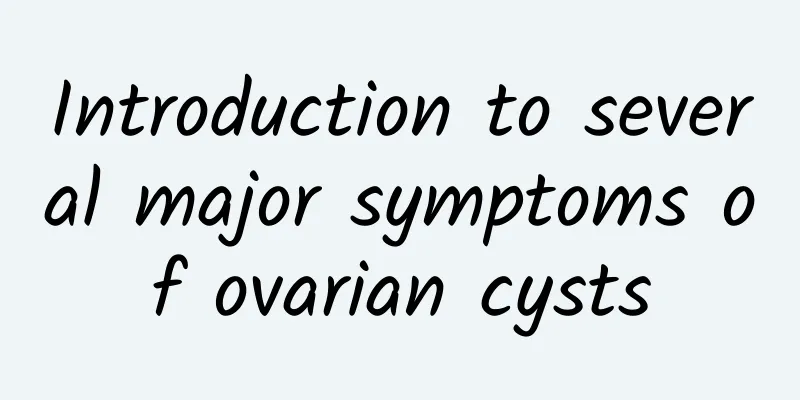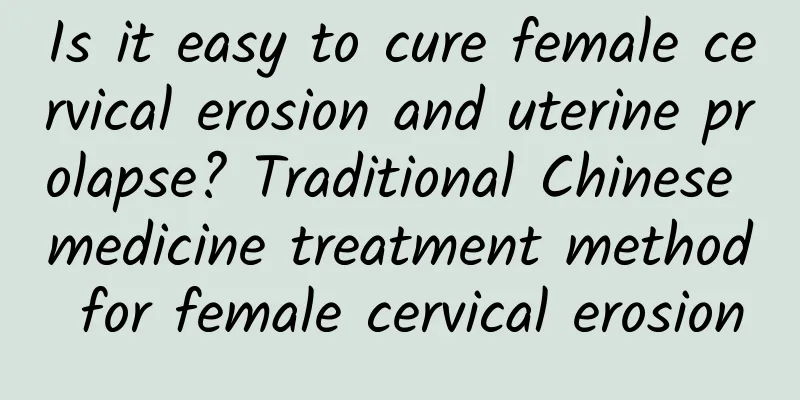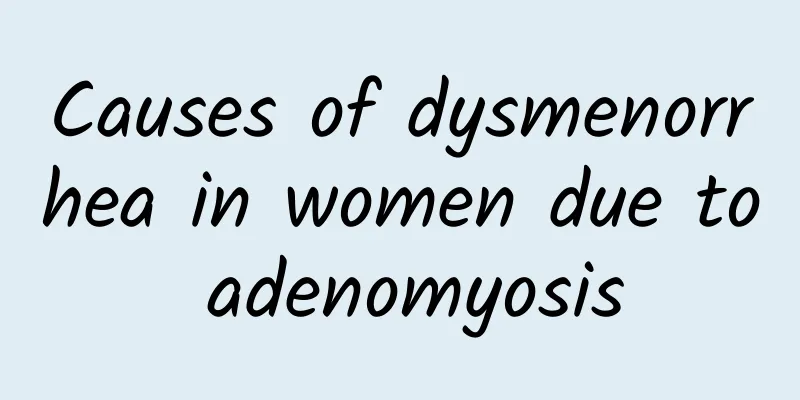Introduction to several major symptoms of ovarian cysts

|
In real life, the symptoms of early ovarian cysts are relatively hidden. Many patients with ovarian cysts accidentally discover that their abdomens are enlarged and there are lumps in their abdomens. This is not conducive to the treatment of ovarian cysts and requires special attention. What are the main symptoms of ovarian cysts ? The following is a brief introduction to the main symptoms of ovarian cysts. Generally, the main symptoms of ovarian cysts are: 1. Increased abdominal circumference and abdominal mass are the most common symptoms. The patient notices that his clothes or belt are too tight, and then notices that his abdomen is enlarged, or feels it accidentally in the morning, so he presses his abdomen and finds a mass in the abdomen, plus abdominal distension and discomfort. This is the main symptom of ovarian cysts. 2. Abdominal pain. If the tumor has no complications, there is very little pain. Therefore, if patients with ovarian tumors feel abdominal pain, especially if it occurs suddenly, it is mostly caused by the twisting of the tumor pedicle, or occasionally by tumor rupture, bleeding or infection. In addition, the symptoms of ovarian cysts are mostly abdominal pain and leg pain, and the pain often causes patients to seek emergency treatment. 3. Menstrual disorders. Generally, ovarian cysts, even bilateral ovarian cysts, do not destroy all normal ovarian tissues, so most of the symptoms of ovarian cysts do not cause menstrual disorders. Some uterine bleeding is not endocrine, or it is caused by ovarian tumors that change the distribution of pelvic blood vessels, causing endometrial congestion; or it is caused by ovarian malignant tumors that directly metastasize to the endometrium. Menstrual disorders caused by endocrine tumors are often combined with other secretory effects. 4. Symptoms of ovarian cyst compression. Huge ovarian tumors can cause dyspnea and palpitations due to compression of the diaphragm. Ovarian tumors combined with a large amount of ascites can also cause this symptom of ovarian cysts. However, the dyspnea of some ovarian tumor patients is caused by unilateral or bilateral pleural effusion, and is often combined with ascites to form the so-called Meigs syndrome. The above is an introduction to the main symptoms of ovarian cysts. I believe everyone should have a certain understanding of this. Once you suffer from ovarian cysts, you must go to the hospital for active treatment in time to prevent the condition from further deteriorating and causing more serious harm. |
<<: Introduction to the three main methods of ovarian cyst examination
>>: Introducing the common causes of ovarian cysts to female friends
Recommend
Can women with amenorrhea be cured?
Can women with amenorrhea be cured? Experts sugge...
What treatment is needed for lupus erythematosus
In recent years, lupus erythematosus has become o...
4 weight loss secrets to lose weight and burn fat with your good friends
"I'm already eating very little, why can...
How to diagnose uterine effusion best
Although the occurrence of uterine effusion is cl...
What should I pay attention to after surgery for cervical precancerous lesions?
In my country, the incidence of cervical precance...
Understand the reasons why women may have irregular menstruation
It is common for women to have irregular menstrua...
There are many ways to treat dysmenorrhea in women
Women should all know about dysmenorrhea, which i...
How to treat moderate cervical erosion caused by vaginitis? Moderate cervical erosion caused by vaginitis can be treated in three ways
In our lives, whether it is vaginitis or cervical...
Can I have a gynecological examination if I bleed after sex?
Yes, you can have a gynecological examination if ...
Xiao S lost 5.5 kg in a month and didn’t keep the menu to herself. Nutritionist: It’s better this way!
In order to make herself look better in photos, a...
What comprehensive suggestions do experts have for the treatment of irregular menstruation?
What suggestions and opinions do experts have abo...
Can you eat salted chicken while losing weight? Nutritionists teach you how to eat without getting fat
For those who want to lose weight by eating out f...
Introduce the typical symptoms of pelvic inflammatory disease
Pelvic inflammatory disease is very harmful. Once...
What are the dangers of thick endometrium?
Endometrial thickening, also known as endometrial...
Treatment of ovarian cysts
Ovarian cyst is a cystic structure formed inside ...









